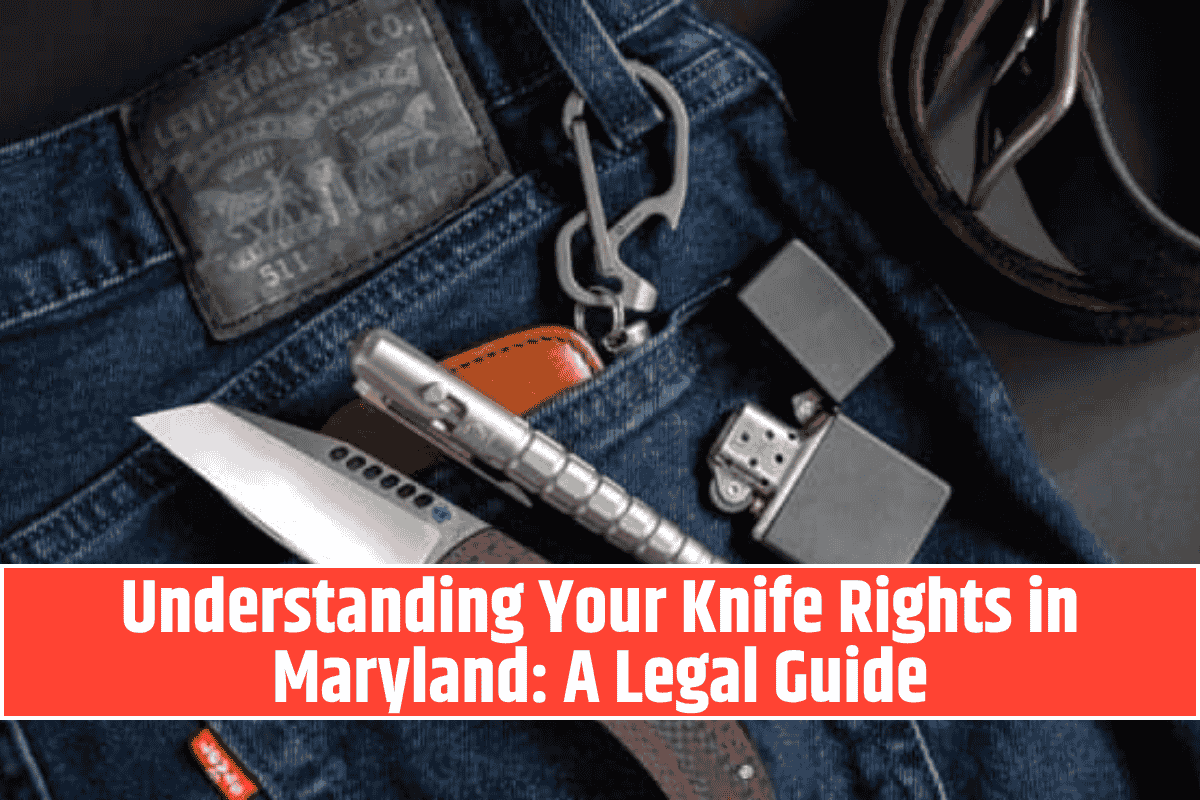Knife laws in Maryland can seem confusing, especially since rules may vary by city or county. Whether you own a knife for work, hobbies like camping, or personal protection, it’s important to know what’s legal and what’s not.
In this easy-to-follow guide, you’ll learn what kinds of knives are allowed in Maryland, which ones are banned, where you can carry them, and what happens if you break the law. Knowing these laws will help you avoid legal trouble and stay safe.
Legal and Illegal Knives in Maryland
Legal Knives
In general, Maryland allows people to own and use many common types of knives. These include:
Pocket knives
Folding knives
Utility knives (like box cutters)
Hunting knives
These knives are legal to own and usually don’t cause any issues if used properly.
Illegal Knives
Some knives are banned in Maryland because they are considered dangerous or made for violent use. You cannot legally own or carry these:
Switchblades (automatic opening knives)
Gravity knives (blades that open with force or motion)
Throwing stars (also called star knives)
Sandclubs (classified as dangerous weapons)
If you’re caught with one of these, you could face serious legal penalties.
Rules for Carrying Knives in Maryland
Open Carry
Openly carrying a knife (where it’s visible) is usually allowed if the knife is not a banned type and if you don’t plan to harm anyone. However, some cities or counties in Maryland have extra rules, so it’s important to check your local laws.
Concealed Carry
Carrying a knife hidden from view (like in your pocket or bag) is more restricted in Maryland. You cannot conceal dangerous knives, especially if there is intent to harm. But you are generally allowed to carry small pocket knives concealed, depending on the blade length and local laws.
Places Where Knives Are Not Allowed
Even if your knife is legal, there are places where you are not allowed to carry it. These include:
Schools and colleges
Government buildings
Public buses, trains, and stations
Private properties with “No Weapons” signs
Carrying a knife in these places could lead to arrest, even if the knife itself is legal.
Exceptions for Law Enforcement and Military
Police officers and military members on duty are usually exempt from most knife restrictions. They can carry knives in more places and may be allowed to have types of knives that civilians cannot.
What Happens If You Break Knife Laws?
Breaking knife laws in Maryland can lead to:
Fines
Jail time
A criminal record
How serious the punishment is depends on the type of knife and what you were doing with it. For example, carrying a banned knife in a school is treated much more seriously than forgetting a pocket knife in your bag at the train station.
Maryland has a mix of simple and strict knife laws. If you stick to owning legal knives like pocket knives or utility tools and avoid banned types like switchblades, you’ll usually be fine. Just make sure you know the local rules, especially about carrying knives in public places.
If you’re unsure whether a knife is legal or not, or where you can carry it, it’s best to talk to a legal expert or check with local law enforcement.
Understanding Maryland’s knife laws helps you stay safe, avoid trouble, and protect your rights while being responsible.












